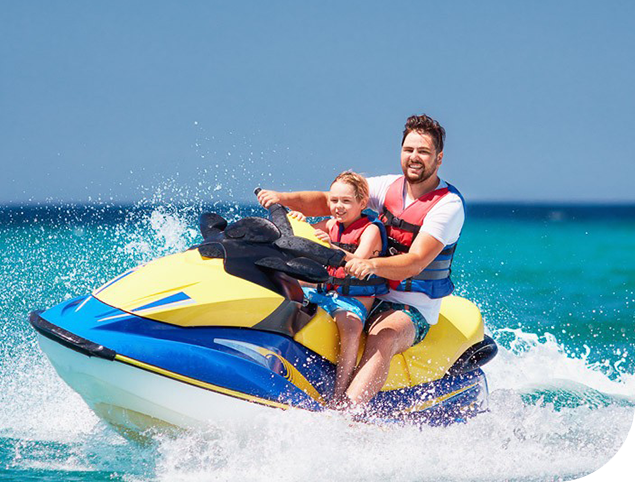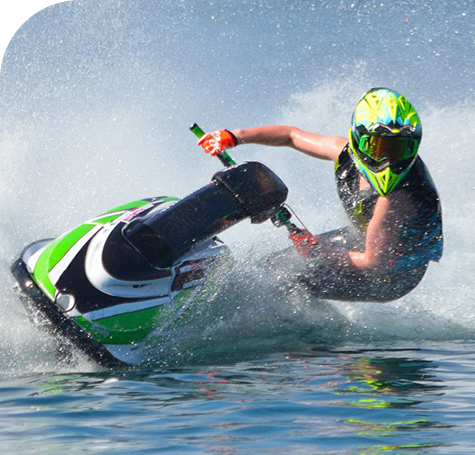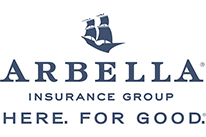If you live by the beach or on the shores of a lake, you may own or might want to purchase a personal watercraft (PWC). These fast and flexible vehicles can be used to practice water sports or just have a good time on a body of water.
However, as with any other vehicle, there are many risks involved. To stay safe and feel protected, you should consider investing in PWC insurance. You can also find out more about watercraft safety here.


Personal watercraft are also known as water scooters. Typically, PWC-s are recreational water vessels where the riders are standing or sitting on the vehicle, rather than sitting inside like on a boat. PWC-s are often referred to by their brand name, for example, Jet Ski, WaveRunner, and Sea-Doo. These terms all refer to the same class of vehicles. Whether you are shopping for jet ski insurance or PWC insurance, you are looking for the same type of coverage.
Generally, PWC-s are divided into two categories: stand-ups and sit-downs.
Stand-ups only have space for one rider who has to stand or crouch on the watercraft. These are usually used for tricks, racing, and competitions.
Sit downs can have more than one rider on them and are used to pull skiers and surfers.
Some companies provide PWC insurance as a supplement to auto or homeowners’ insurance. However, if you use your watercraft frequently or for doing sports, it might be better to get insurance tailored for PWC-s.
Typically, insurance companies offer “all-risk” policies that come with watercraft liability coverage and cover most costs related to accidents and collisions.
However, there are many other policies that could either already be included in the basic policy or added on to it:
Normally, you can choose between two policy types that determine how your costs are going to be calculated and covered: agreed value and actual cash value.
Under the agreed value policy, your coverage would be determined based on the value of your vehicle at the time of insuring it. Thus, if you need to replace parts or the PWC itself, the new parts could be worth as much as the old ones would have been at the time of getting the policy.
However, under the actual cash value policy, the value of the PWC will depreciate over time, which means that coverage also reduces. In the event of a total loss of the PWC, your coverage would depend on your PWC’s market value at the time of the incident, not at the time of insuring it.
Related insurance policy

Sometimes people assume that their PWC is covered under their homeowners' insurance. While it can offer some coverage, it is rarely enough when an accident happens and you need to cover losses associated with property damage and bodily injuries.
Every time you go on the water, there is a risk of an accident that can result in extensive medical costs, oil leakage, and property damage. Even just one accident could lead to major expenses and debt. Insurance helps to avoid that and instead, gives you peace of mind while you are out on the water.
What is not listed in your policy is usually not covered, which is why you should always carefully review your insurance policy before signing it. Additionally, there are some things insurance cannot cover at all. Here are some examples:
Here are some things to keep in mind before getting insurance:
If you would like to discuss your options with an expert, email us. Together we will find the policy best suited for your needs.




